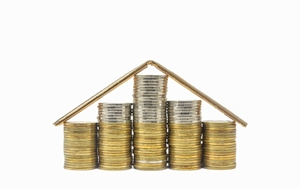Like any investment, rental properties have their ups and downs. While finding the right tenants and ensuring that regular maintenance is carried out is one thing, the brass tacks of how much such an arrangement can improve your financial position simply has to be assessed.
Forecasting the return on a rental property involves a number of steps. First of all, there's the location of the real estate itself. Consequently, it's important to have an understanding of geographic trends, and where they will be further down the line.
Purchasing a property can often present the potential for multiple revenue streams.
Second guessing
Of course, this is somewhat of a guessing game, as trying to forecast where the rental property market will be one, two or five years down the line is difficult. More crucial, is an assessment of outgoings against incomings.
One of the biggest advantages of purchasing a property to rent is that it can present multiple revenue streams. A property – within reason – can be split and rented out as individual units. For example, a four bedroom property could be converted to individual units for relatively little cost. This creates the potential for multiple, separate revenue streams.
While this is certainly a good way to go if you're looking to secure return on investment, there are a number of factors to consider in any calculations. About Money cites the following:
- The overall cost of the property
- The size of any loan or mortgage
- Taxes and insurance to cover the property
- An estimate of non-vacancy rate
- The percentage of chance of non-payment of rent
- The value of the rent per week, month and year
The expert advice
As the list suggests, there are a whole host of numbers to be crunched. Ultimately, while certain criteria can be worked out relatively similarly, building a solid background of data that can be included in any rental property forecasting will often require the help of experts.
Ultimately, as noted by research from Westpac, there are two questions that remain central when deciding whether a rental property is a worthwhile investment: What is the potential for capital growth? What is the potential for rental income?
Once you have a clear answer to both, the viability of the property should become clear. Rental properties can be a significant investment, so getting it right is crucial. Fortunately, if you're ready and willing to remember the basics, and consult with the experts when the figures are collated, then an accurate forecast can lead to a return further down the line.



